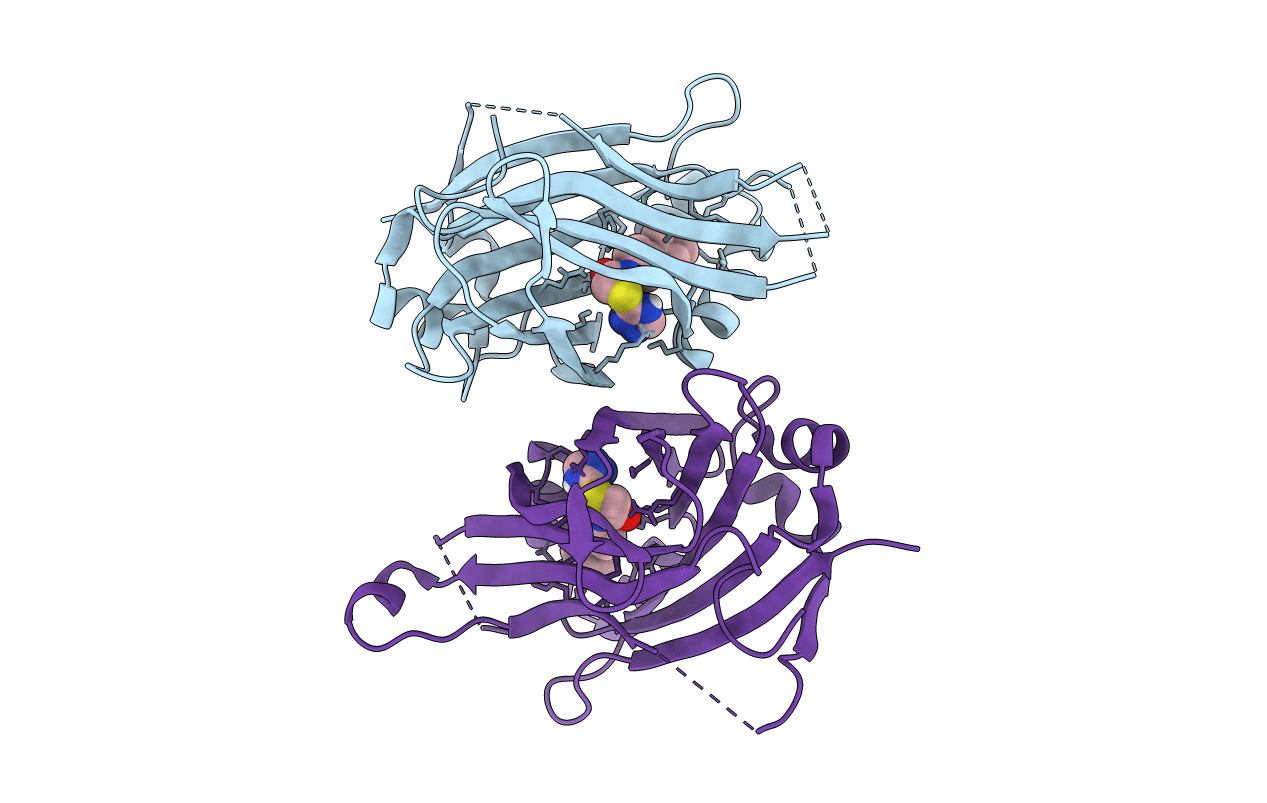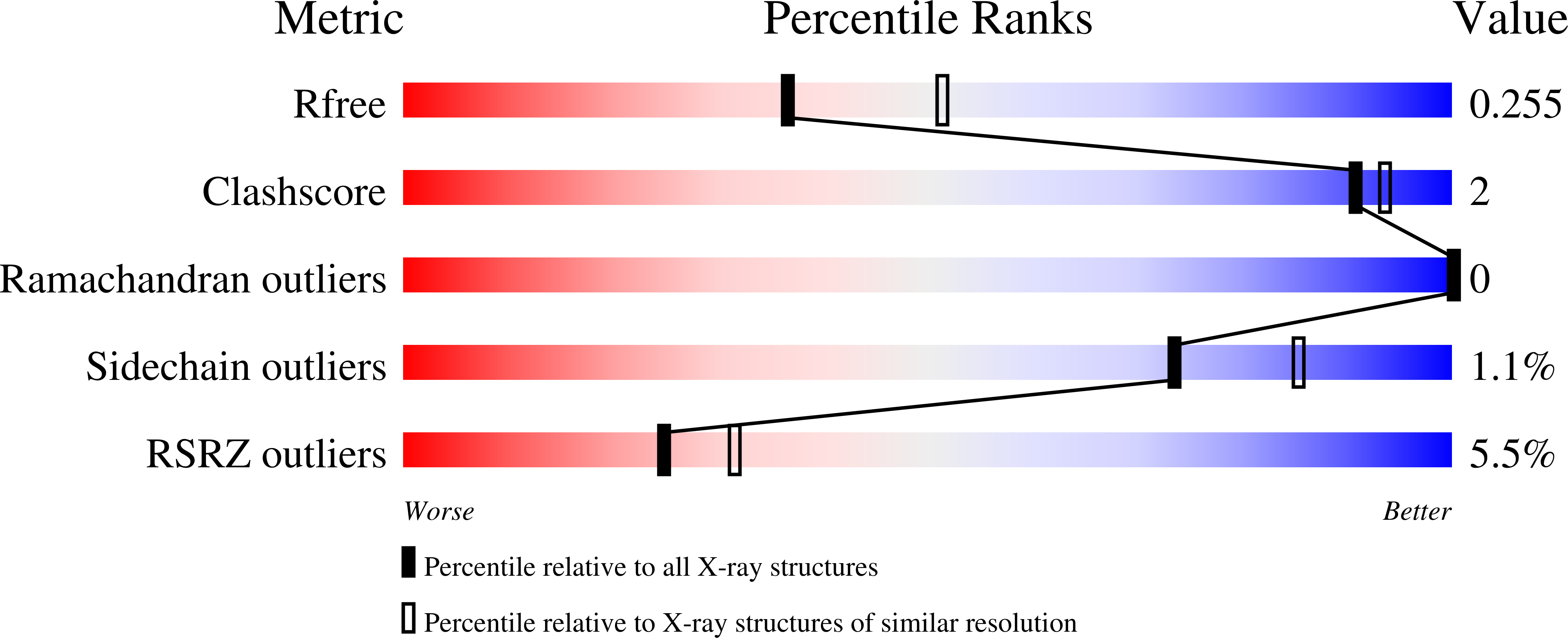
Deposition Date
2018-02-09
Release Date
2020-07-01
Last Version Date
2023-10-04
Entry Detail
PDB ID:
6CDY
Keywords:
Title:
Crystal structure of TEAD complexed with its inhibitor
Biological Source:
Source Organism(s):
Homo sapiens (Taxon ID: 9606)
Expression System(s):
Method Details:
Experimental Method:
Resolution:
2.32 Å
R-Value Free:
0.25
R-Value Work:
0.19
R-Value Observed:
0.20
Space Group:
C 1 2 1


